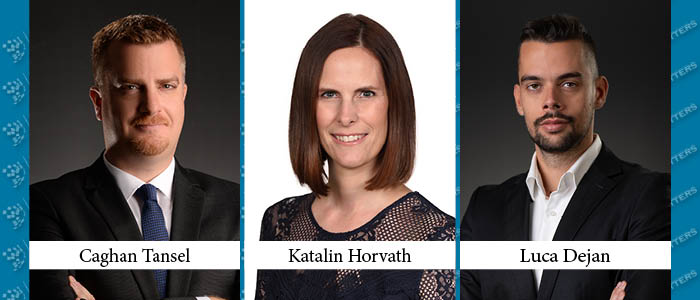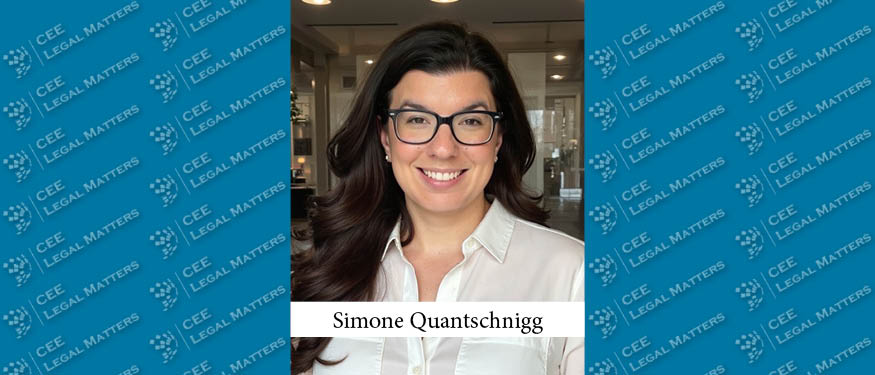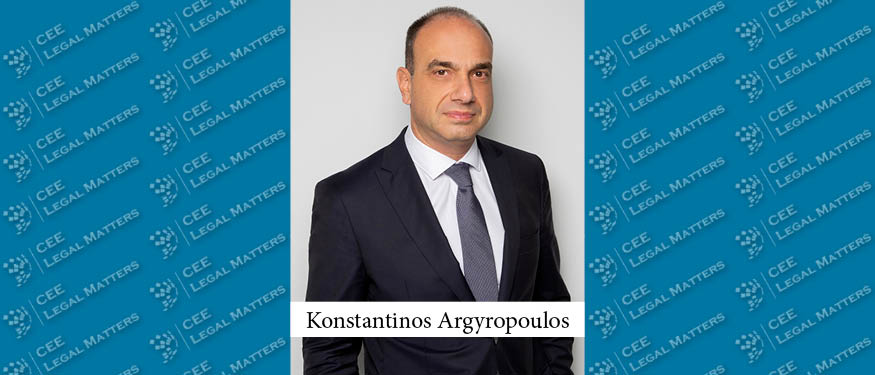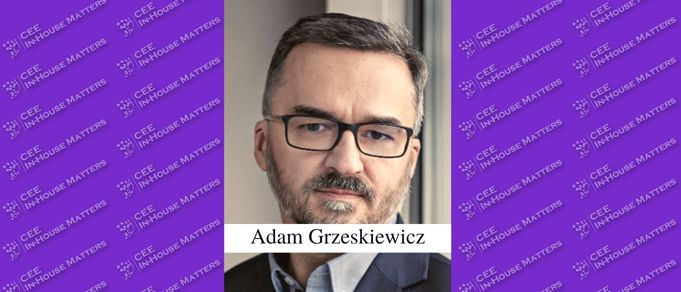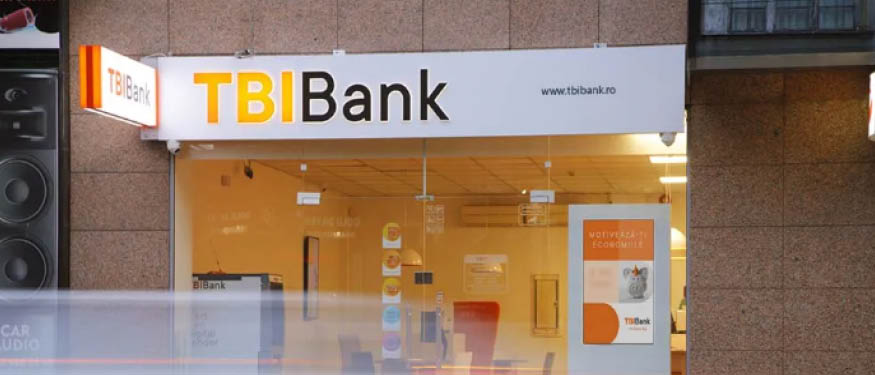On March 26, 2024, TMT/IP, fintech, and emerging technology experts from Hungary, Romania, and Turkiye sat down for a virtual round table moderated by CEE Legal Matters Managing Editor Radu Neag to discuss how Blockchain-related technologies, businesses, and legislation are shaping up in their jurisdictions.
Participants:
- Caghan Tansel, Partner, Tansel Turkiye
- Katalin Horvath, Partner, CMS Hungary
- Luca Dejan, Partner, VD Law Romania
CEELM: Blockchain has become a buzzword in many parts of the world – and certainly so in CEE. To what extent has it been a topic of discussion in your country, and what were the first instances when this subject became active? How did it evolve over time?
Dejan: The rise of Bitcoin definitely fueled blockchain's popularity. While the technology itself isn't new, blockchain's visibility grew alongside the increasing value of cryptocurrency. From an investment perspective, it offered returns on multiple fronts. Here in Romania, [initial coin offerings] have become a major trend, with numerous crypto projects seeking to capitalize on it. This exposure pushed both the public and private sectors to become more familiar with blockchain.
By 2017-2018, crypto assets were a constant topic of conversation. Interestingly, the Romanian government even leveraged blockchain technology for increased security and transparency in the 2020 parliamentary elections.
Horvath: In Hungary, discussions around blockchain primarily involve collaborations between the government, industry players, and academia. These joint efforts are pretty standard here and, around 2018, we saw the formation of dedicated blockchain organizations.
Today, blockchain is a regular topic in both business circles and government agendas. A new blockchain law was introduced in March, though it's yet to be finalized and implemented. Just last week, a series of events coincided with the Budapest Blockchain Week. While banks and financial institutions are heavily involved in blockchain projects, a growing number of blockchain-related start-ups are also emerging.
Tansel: Similar to Hungary, Turkiye is anticipating a new law specific to crypto assets. We expect secondary regulations to follow within the next six months as of the enactment of the new law. With this evolving legal framework in place, discussions are turning towards the custody of crypto assets. It's worth noting that Turkiye’s new cryptocurrency regulations are expected to attract new investments from various sectors. These include real estate tokenization, project financing through diverse channels, and new financial instruments such as ETFs and ETNs based on the spot price of Bitcoin. Central Bank Digital Currencies (CBDCs) are another hot topic; the Turkish Central Bank has already issued a report on them, and they're anticipated to gain significant traction alongside stablecoins.
Importantly, with blockchain as the underlying technology, there are already specialists offering enterprise solutions built on blockchain. Once the regulatory framework is solidified, Turkiye is well-positioned to become a significant player in this space. This year holds particular significance for this reason. By aligning Turkish regulations with the MiCA, developments in the UK Parliament, and Dubai's regulatory landscape, Turkiye aspires to become a key player in the EMEA region.
CEELM: How are the client profiles, the matters they need assistance for, and the overall landscape looking right now?
Horvath: Due to the MiCA EU regulations, our work is primarily focused on regulatory and licensing work. We help companies navigate the licensing processes to ensure they comply with the MiCA – that's the essential first step for any new operation in this space. Banks and financial institutions are also major clients seeking clarity on the regulations surrounding blockchain and crypto assets. Interestingly, even big banks have begun selling crypto assets as part of their crypto portfolios. We also work with wallet operators who provide services for storing crypto assets, as well as exchanges that facilitate swaps and conversions between crypto and fiat currencies.
NFTs remain quite popular, particularly within the digital art and creative space, and we have artist clients seeking legal advice in this area. Real estate tokenization is another frequent inquiry, but Hungarian law presents some challenges in this area. However, we find creative solutions to address such challenges.
Tansel: Start-ups are our primary client base. We also work with public companies holding commissions in various private sectors, particularly for matters related to real estate tokenization and project financing. Right now, there's a sense of waiting as everyone anticipates the implementation of new crypto regulations in Turkiye. We expect these regulations to be accompanied by secondary legislation within the next six months. With a clear legal framework in place, we anticipate significant investor interest, from the energy sector, for example, especially green energy projects. We're also liaising with banks, regulatory bodies, and clients seeking legal clarifications and comparisons, particularly in the context of the MiCA.
Green energy holds particular promise for project financing, especially for renewable energy sources like wind and solar power, which can benefit from tokenization efforts. Tokenization, through the use of smart contracts, can also generate ongoing revenue streams that are tied to the operational lifespan of a facility. Additionally, it can facilitate ownership and distribution structures.
However, all of these possibilities hinge on a clear regulatory framework being established. While institutional investors are a major player currently, there's room for a broader investor base as more platforms become available.
Dejan: Romania's well-established IT sector has fueled the growth of innovative blockchain start-ups offering technical infrastructure solutions. We've seen a flourishing of local and international crypto exchanges, NFT marketplaces, gaming platforms that utilize cryptocurrencies, and even payment services that allow for automatic conversion between crypto and fiat currencies when used on the platform. Tokenization was a major trend for a while, with everyone eager to tokenize everything they could, with real estate being a particularly popular target.
However, Romanian law hasn't been able to adapt as quickly as the technology has evolved, leading to discussions with other regulatory environments in an effort to attract investors to these tokenization projects. Our specialization in blockchain allows us to provide comprehensive legal services in this area, regardless of the jurisdiction. It's important to note that EU regulations can be quite rigid, especially when it comes to updating established legal areas like real estate. Dubai offers a unique advantage in this regard – its open dialogue with regulators facilitates the creation of regulatory sandboxes. This allows companies to operate in Romania using Dubai's legal structures, similar to how English law has historically been used for a wide range of international investments.
CEELM: Let’s take a step back for a second and discuss the term “blockchain.” What do you associate it with most closely?
Tansel: Bitcoin, where it all started – financial freedom – and I still definitely see myself as part of the overall, global, decentralized community. While we can talk about assets, projects, and endeavors, it all started with Bitcoin and Proof of Work as a protocol. There are some examples of Proof of Stake, but consuming energy and driving monetary value out of that to solve the double-spending issue. There are discussions about other crypto assets and issues, commodities, money, and the like, yet Bitcoin is secure and safe in its position.
Dejan: Mainly crypto assets, be it Bitcoin or service providers – this is the most popular layer you see in front of you. And, starting from a couple of months ago, medical-related AI. We had some projects that were quite popular, related to AI in the medical sector, and we are currently working on a very interesting project that managed to combine the two tech areas to make the most out of it.
Horvath: Distributed ledger technology, crypto, and NFTs. Still, in the early 2000s, we had a project connected with the food supply chain, trying to create an RFID food tracking system. Our client switched to blockchain from RFID tech, and the entire system became better and more reliable. The immutability aspect is the key factor here, especially when it comes to certifications. You can also use blockchain for tracking emission levels and certification of energy origin – so it also has ESG uses.
CEELM: What are the most promising use cases for blockchain technology across various sectors in your jurisdiction?
Horvath: A quick scan of leading blockchain start-up lists reveals a vibrant Hungarian ecosystem. Hungarian companies are leveraging blockchain for diverse purposes, from agricultural product tracking solutions to decentralized finance, metaverses, and even the gaming and gambling industries. One example is a complete ecosystem for storing and tracking game events, assets, and even virtual art tours within games. Loyalty programs and crypto advisory services, like OneBit, are additional areas where Hungarian companies are finding success with blockchain.
A particularly promising area is a smart contract platform designed for broad applicability across various event types. Furthermore, blockchain document management offers a powerful tool for companies seeking paperless workflows, streamlining processes, and impacting the work of lawyers. While some fear smart contracts replacing lawyers entirely, the reality is that complex legal matters will still require human expertise.
Dejan: The retail industry, particularly in supply chain management, presents a clear and valuable application for blockchain technology. For Romania specifically, decentralized finance holds significant potential, especially in lending protocols. Additionally, a fascinating new project aims to leverage blockchain to demonstrate the provenance and authenticity of fashion goods. The future may even hold a land registry system built upon blockchain technology.
Tansel: Despite a lack of specific regulations yet, Turkiye boasts a flourishing landscape of blockchain projects. Payment systems, digital wallets, and custody applications are at the forefront of this movement. The real estate and gaming industries are also actively exploring blockchain solutions. Importantly, business-to-business applications are emerging, encompassing document management and even tender processes. Furthermore, official and governmental bodies, including the Central Bank with its Central Bank Digital Currency efforts, are demonstrating a growing interest in implementing blockchain technology.
CEELM: How does your country's approach to blockchain compare to other jurisdictions? Do you see it to be relatively open or conservative?
Tansel: Turkiye's unique geographical position as a cultural and business crossroads, combined with its ongoing EU accession talks, fosters a balance between a cautious approach, risk tolerance, and entrepreneurial spirit. This translates to a relatively open approach similar to the US, with a vibrant ecosystem of blockchain projects emerging even without comprehensive regulations. Once regulations are solidified, institutional investors are expected to enter the market, further boosting activity and capital flow.
Turkiye keeps a close eye on developments in leading jurisdictions like the US, UK, and Dubai to stay at the forefront of global trends. This vigilance allows Turkish players to assess the potential for expanding their projects into new markets. While challenging, this space offers exciting opportunities, demanding an agile and adaptable approach to constant change.
Horvath: Hungary's government is taking a cautious approach to blockchain regulation. Following the implementation of the EU's MiCA framework, Hungary has adopted a complementary rule treating financial instruments on the blockchain similarly to traditional instruments. Notably, there is an absence of specific Hungarian blockchain laws at this time.
Despite a seemingly open government stance, there haven't been discussions about optimizing government structures with blockchain technology. The Hungarian National Bank has issued warnings regarding cryptocurrencies but not blockchain technology itself. Similarly, the Tax Authority and Ministry of Finance are primarily focused on payment and tax implications. Consumer protection, traditionally conservative in Hungary, extends to blockchain as well, with official guidance urging caution regarding cryptocurrencies.
Dejan: Romania leans towards an open approach, with no precise registration requirements for cryptocurrency businesses. Initially, a lack of specific regulations existed for new service providers, with the focus on ensuring tax payments and adhering to the principle of taxing "gains transferred into fiat." Subsequently, modifications to the criminal code clarified that embezzlement and theft involving cryptocurrencies fall under existing legal provisions. The Romanian government aimed to reassure the public that existing legal frameworks also applied to cryptocurrencies.
While implementing the EU's AMLD5 regulation, Romania only achieved partial success regarding KYC and AML requirements for wallet providers. A proposal for a comprehensive procedure for crypto asset and wallet providers was drafted but hasn't been enacted yet. Another recent proposal has emerged, but its timing conflicts with MiCA implementation, suggesting Romania might be falling behind other jurisdictions. Also, the National Bank and Financial Services Authority have issued routine monitoring warnings regarding the crypto space.
CEELM: How are crypto assets taxed in your country? What's the regulatory approach there?
Tansel: Turkiye currently boasts no crypto-specific taxes. Recent pronouncements from officials hint at a potentially favorable tax regime designed to foster innovation and attract both domestic and international customers. We can anticipate a more competitive tax framework emerging through legal modifications, further solidifying Turkiye's appeal to investors and technology companies.
Dejan: Romania has established specific tax provisions for individuals. Gains exceeding EUR 150 incur a 10% tax, with social security contributions calculated based on the gain amount and subject to different thresholds. Currently, there is no distinct tax regime for companies dealing with cryptocurrencies.
Horvath: Hungary applies its general personal income tax rules to crypto assets and related income, resulting in a 15% tax rate. However, exceptions exist. For instance, a single daily transaction with a value less than 10% of the minimum wage threshold is exempt from taxation. Conversely, exceeding this limit in a single day triggers income tax liability. Companies, on the other hand, are subject to standard corporate taxation rules.
CEELM: What are the upcoming legislative or regulatory initiatives in your jurisdiction? How is your firm preparing for some possible developments in the area?
Tansel: The most anticipated legislative change in Turkiye is an amendment to the current Capital Markets Law. This will be followed by secondary regulations that provide the finer details of the regulatory framework. Additionally, a new tax law is expected as well.
The multifaceted nature of blockchain demands a multidisciplinary approach. Legal boundaries are blurring, and lawyers are increasingly expected to possess a basic understanding of finance and software development. Collaboration is paramount – developers also benefit from legal and financial knowledge.
Seamless collaboration between legal, financial, and software development teams is crucial for cross-border projects. To achieve this, we are actively fostering partnerships and continually enhancing internal knowledge through academic and practical avenues. On-the-job training strengthens our capabilities, and we may expand our team to gain a deeper understanding of the subject matter. Effective collaboration with various institutions and regulatory bodies is essential in the web3 space – we are actively building these connections to solidify our position in the field.
Horvath: The Hungarian regulatory agenda focuses on MiCA implementation and the Distributed Ledger Technology pilot regime regulation. The most significant changes are expected with the MiCA. Regulatory procedures in Hungary can be lengthy, with obtaining a payment services license taking almost a year. However, the Central Bank's licensing process is predictable. From a technological standpoint, I anticipate a rise in using layer 2 blockchains.
Being a smaller nation, Hungary's appeal as a business destination isn't significantly diminished by the possibility of obtaining a MiCA license elsewhere and having it passported to Hungary.
As an international law firm, we leverage our global expertise and embrace cutting-edge technology. We already utilize tools for managing licensing requirements and actively integrate AI into our daily operations, ensuring we stay ahead of the curve. While we won't necessarily become blockchain technology experts ourselves, we need to be knowledgeable enough to provide our clients with proper support and guidance. Fortunately, we have a network of qualified external experts we can rely on to stay abreast of all aspects of this evolving field.
Dejan: Similar to Hungary, Romania awaits the implementation of the MiCA, the DLT pilot regime, and a national law transposing the MiCA into Romanian law. Additionally, the Fifth Anti-Money Laundering Directive might necessitate registration for crypto asset and wallet providers.
The introduction of the MiCA is a significant step forward. The EU intends to avoid classifying crypto assets as financial instruments, so the MiCA regulations are built upon the existing framework for regulating financial instruments. This will create legal compliance challenges and cost burdens across the EU, particularly in jurisdictions without prior MiCA-related authorization processes. Adapting to and implementing these regulations will be a substantial undertaking, even with the provided grace period.
Maintaining a close relationship and open dialogue with public authorities is crucial. We actively participate in ongoing training sessions, emphasizing the importance of an open and collaborative approach.
By continuously engaging with authorities, we aim to understand the necessary steps to address client needs and gain some lead time before new regulations come into effect. We've already submitted several questions to regulators and are awaiting their responses.
Moreover, I concur with my colleagues – a competent lawyer requires a working knowledge of the legal areas in which they practice. For highly technical matters, we have in-house experts who can, for example, audit smart contracts. Additionally, we collaborate with external specialists when necessary to ensure the highest level of preparedness; we are constantly learning and adapting to the ever-changing landscape of blockchain technology.
CEELM: Regarding all of the above: What is the one item on your Wishlist that you'd like to see in the future?
Horvath: The MiCA's exclusion of NFTs is a concern, particularly considering the prevalence of misconceptions and the current market volatility. More explicit regulations would be highly beneficial, especially for the increasingly popular utility NFTs.
Dejan: A swift implementation of the MiCA alongside a flourishing Romanian fintech market is my ideal scenario. The future of this technology is undeniable – being involved at this nascent stage, with regulations evolving concurrently, presents a unique and exciting opportunity.
Tansel: Regulations are essential, but fostering regular dialogue among stakeholders across the regulatory landscape is equally critical for success. A narrow focus on one's practice area limits the ability to build a robust network – an essential ingredient for a thriving blockchain ecosystem. While regulations play a role, fostering collaboration and an entrepreneurial mindset among all participants is key to driving positive change within the industry.
This article was originally published in Issue 11.4 of the CEE Legal Matters Magazine. If you would like to receive a hard copy of the magazine, you can subscribe here.

